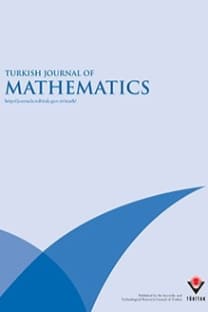Joint densities of hitting times for finite state Markov processes
For a finite state Markov process $X$ and a finite collection $\{ \Gamma_k, k \in K \}$ of subsets of its state space, let $\tau_k$ be the first time the process visits the set $\Gamma_k$. In general, $X$ may enter some of the $\Gamma_k$ at the same time and therefore the vector $\bm\tau :=(\tau_k, k \in K)$ may put nonzero mass over lower dimensional regions of ${\mathbb R}_+^{|K|}$; these regions are of the form $R_s=\{{\bm t} \in {\mathbb R}_+^{|K|}: t_i = t_j, ~~i,j \in s(1) \} \cap \bigcap_{l=2}^{|s|} \{{\bm t}:t_m < t_i = t_j,~~ i,j \in s(l), m \in s(l-1) \}$ where $s$ is any ordered partition of the set $K$ and $s(j)$ denotes the $j^{th}$ subset of $K$ in the partition $s$. When $|s| < |K|$, the density of the law of $\bm\tau$ over these regions is said to be ``singular'' because it is with respect to the $|s|$-dimensional Lebesgue measure over the region $R_s.$ We derive explicit/recursive and simple to compute formulas for these singular densities and their corresponding tail probabilities over all $R_s$ as $s$ ranges over ordered partitions of $K$. We give a numerical example and indicate the relevance of our results to credit risk modeling.
Keywords:
Finite state Markov processes, simultaneous hitting times, densities of singular parts multiple first hitting times, generalized multivariate phase-type distributions, credit risk modeling,
- ISSN: 1300-0098
- Yayın Aralığı: Yılda 6 Sayı
- Yayıncı: TÜBİTAK
Sayıdaki Diğer Makaleler
On the dimension of vertex labeling of $k$ -uniform dcsl of an even cycle
Nageswararao KARREY, Kizhekekunnel AUGUSTINE
A result on the maximal length of consecutive 0 digits in $\beta$-expansions
Young Sup KIM, Sebastien GABOURY, Arjun Kumar RATHIE
Namita DAS, Jitendra Kumar BEHERA
Mustafa SALTAN, Yunus ÖZDEMİR, Bünyamin DEMİR
An application of $q$-Sumudu transform for fractional $q$-kinetic equationequatio
Sunil Dutt PUROHIT, Faruk UÇAR
İsmet ALTINTAŞ, Kemal TAŞKÖPRÜ
The Cauchy–Kowalevski theorem applied for counting connections with a prescribed Ricci tensor
